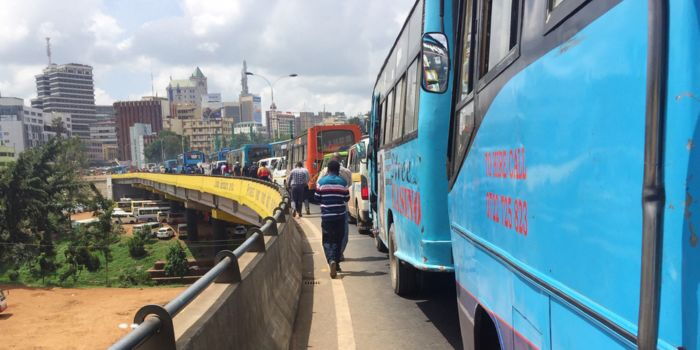Government Unveils New Plan to Fight Crime with Public Participation
The Kenyan government has introduced a new crime-fighting strategy that puts ordinary citizens at the heart of securing their communities.
This fresh approach, called Jukwaa la Usalama, builds upon the traditional Baraza system and updates it to meet the modern security challenges facing the country today.
Jukwaa la Usalama is designed to make citizens more involved in matters of safety and crime prevention in their local areas.
It emphasizes the importance of collaboration between the public and the government in maintaining peace and stability.
According to detailed plans seen by Newshub.co.ke, one of the key steps involves creating Local Safety Councils that will operate within communities to help tackle security challenges.
These councils will work alongside faith-based and cultural organizations to promote peacebuilding and social harmony at the grassroots level.
The Ministry of Interior will also ensure that women and young people have a strong voice in shaping local security policies.
This will include offering civic education sessions to help citizens better understand their rights and how they can engage with government institutions to promote peace and accountability.
The larger goal of Jukwaa la Usalama is to restore and strengthen public trust in government institutions, improve the work of police officers, and create lasting peace as a foundation for social and economic growth.
The success of this plan will rely heavily on accurate data collection. To achieve this, the government will depend on the National Government Administrative Officers (NGAOs), especially chiefs, to gather community feedback.
This data will then be used to guide how police resources are distributed and to develop specific security strategies based on the needs of each region.
NGAOs include a wide range of officials, such as Regional Commissioners, County Commissioners, Deputy County Commissioners, Assistant County Commissioners, Chiefs, and Assistant Chiefs. These officers will be responsible for closely monitoring public concerns in their jurisdictions and reporting them regularly.
To support this effort, the Ministry of Interior is rolling out new systems, such as monthly reporting tools for chiefs to keep track of community sentiments.
There will also be regular coordination meetings between County Commissioners and local security teams, as well as training sessions for NGAO officers on public engagement and how to handle communities affected by trauma.
For the police, the plan includes a requirement for the National Police Service to conduct frequent performance reviews aimed at making police services more responsive and efficient, especially when handling complaints from the public.
Jukwaa la Usalama has already kicked off, with the first pilot programme launched in Mombasa last week. The government is now preparing for a full rollout of the programme across the country.
During the first session, held on April 8, residents of the coastal region brought up major security issues troubling their communities. These included youth radicalisation and violent extremism, drug and substance abuse, as well as land disputes and insecurity related to land ownership.
In response, the government gave immediate feedback and announced several actions: the creation of a Coast Region Anti-Narcotics Task Force, the formation of a Special Land Dispute Resolution Task Force, and the setup of Youth Safety and Innovation Hubs. Additionally, the government promised to introduce community-based programmes to help counter youth radicalisation and promote safer neighbourhoods.
This new approach signals a shift in how Kenya tackles crime, focusing more on collaboration, communication, and tailored solutions that reflect the specific challenges faced in each region.
Join Our Political Forum official 2025 WhatsApp Channel To Stay Updated On time https://whatsapp.com/channel/0029VaWT5gSGufImU8R0DO30


